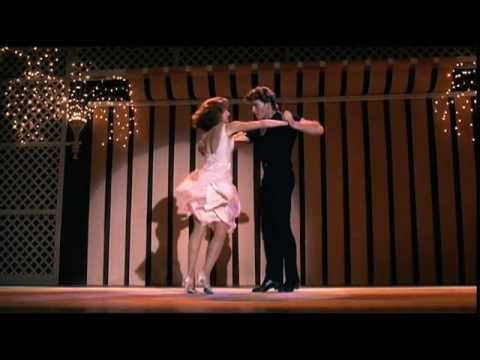
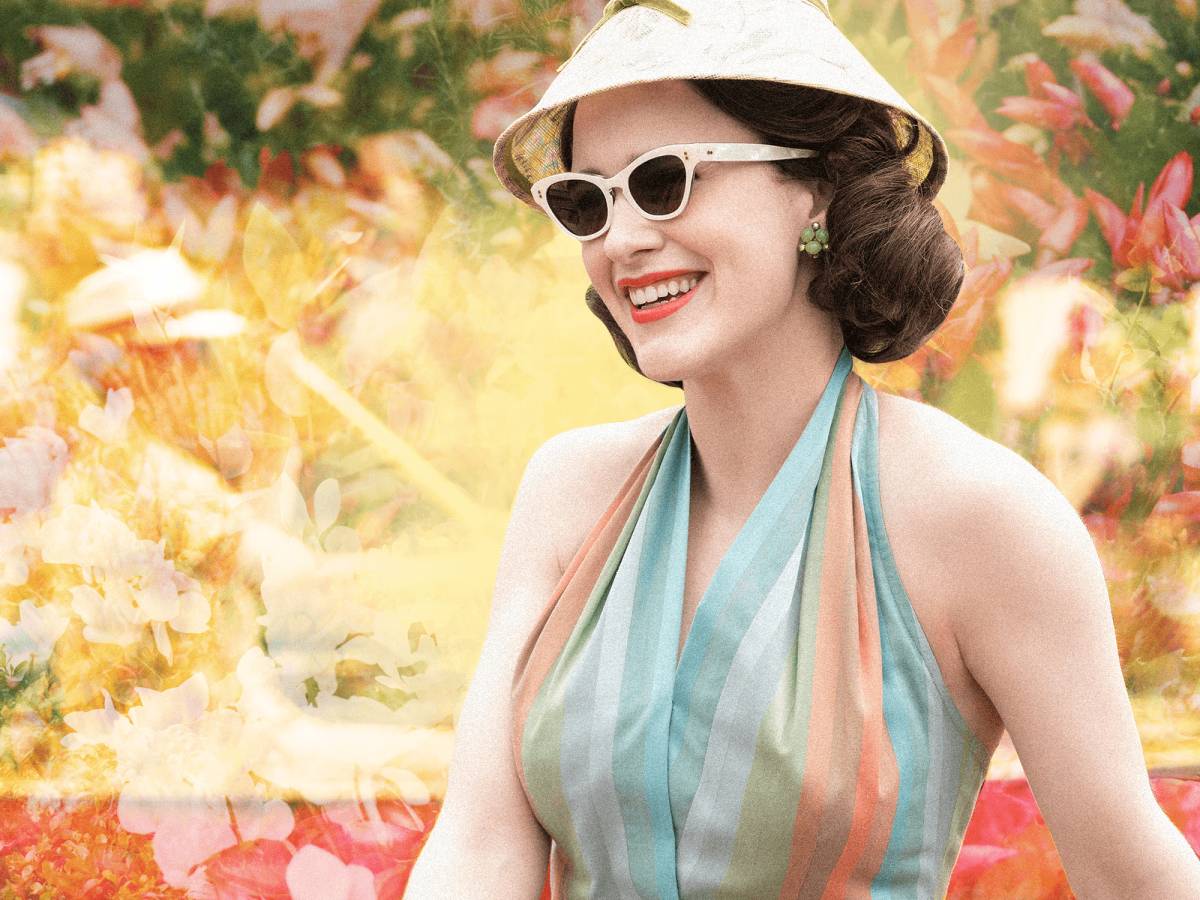
Why is May 2019 different from all other months? It’s Jewish American Heritage Month for one, a period that feels especially important to mark given the rising insecurity coursing through Jewish American life. Because visibility is more important than ever before, Refinery29 brings you our celebration of Jewish American culture. L’chaim!
On the morning of my bat mitzvah, I got my period for the first time. I conveyed the news with pride to the laughter of my parents on our drive to temple, and then to anyone else who would listen for the remainder of the festivities. I had become a woman in more ways than one, and at this, my aunts kvelled.
For me, humor has always represented a seed of Jewishness no less significant than the blessing over the wine. (Just last month, for example, I went home to California for Passover, and my uncle led the seder with a Haggadah inspired by the music of the band Phish.)
And yet, despite what I thought was a deep understanding of the connection between humor and Jewishness, I didn’t even know about the Borscht Belt-era Catskills, where American Jewish comedy (and really just American comedy) was born, until I watched season 2 of The Marvelous Mrs. Maisel. I was, in a word, verklempt. I must also admit I have never seen Dirty Dancing, which I’m told is a celebrated piece of pop culture that encapsulated the Borscht Belt resort experience but kept the Jewish out of it.
So I embarked on a research expedition: What was this halcyon Jewish vacationland in upstate New York, where the tomato juice and borscht were aplenty and you could buy a fur coat in the dining room and later catch a midnight show? Like Midge Maisel asked in her comedy set at The Concord, to the roaring laughter of the audience, “What kind of sadists feed you 10 meals a day and then tell you to put on a fucking bikini and go find a husband?”
To be fair, though, I did grow up going to my grandparents’ timeshare in Palm Springs over the summer, where I was encouraged to make friends at the pool (I did not want to) and ate my grandma’s matzo brei and the much less delicious kosher cookies she kept the pantry stocked with.
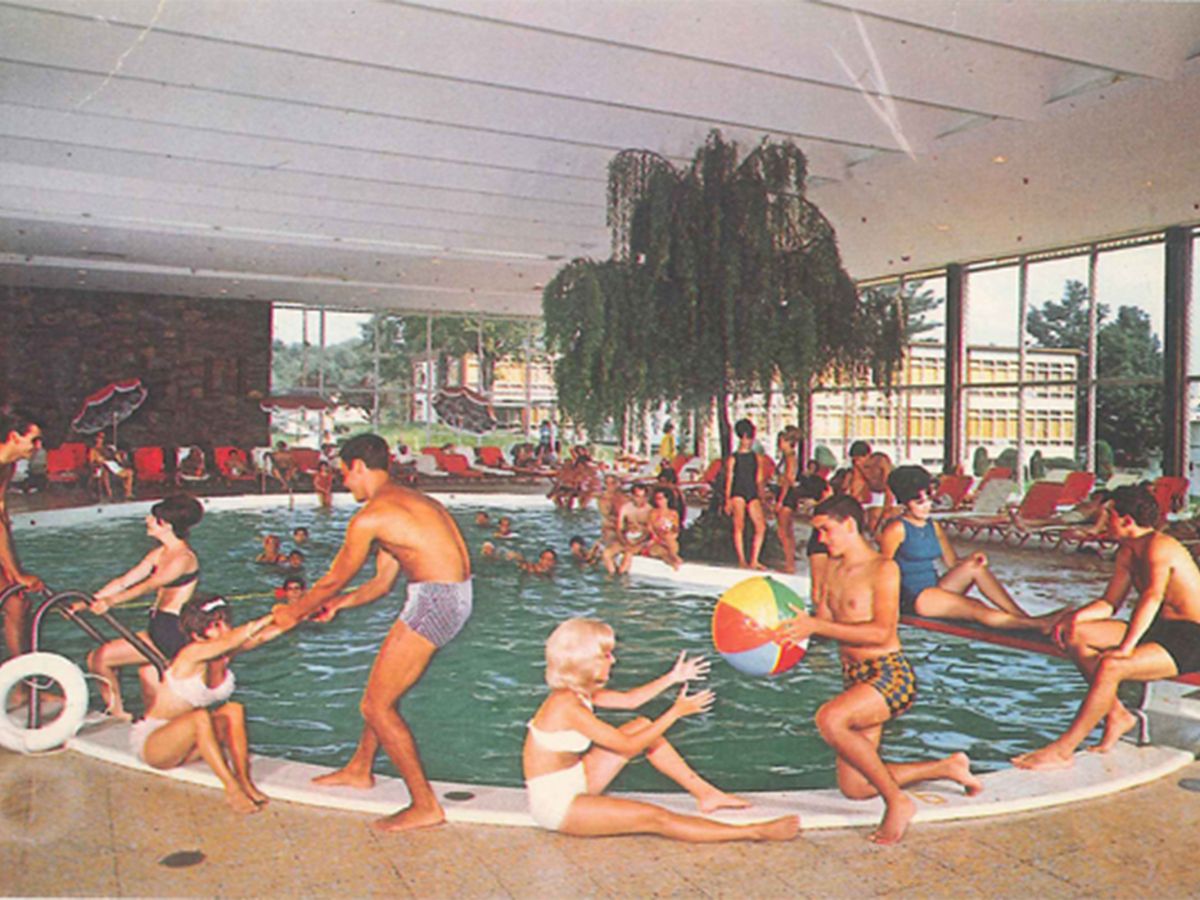
Photo: Courtesy of Marisa Scheinfeld
There were once 538 resorts in the Borscht Belt area of the Catskill Mountains, so named because of the middle-to-upper class Jewish families from New York City who flocked there for the summers from the 1920s to the 1960s. The biggest names were Grossinger’s (which famously inspired the setting of Dirty Dancing, and where Larry King once worked for a summer as a busboy), The Nevele, Kutsher’s, and The Concord (where Midge Maisel likened a pair of breasts to a couple of Grossinger’s Baked Alaskas in her midnight show). And then there were the thousands of bungalow colonies where families could rent cabins for the whole summer.
The Borscht Belt was a place to commune with other Jews at a time when Jewish immigrants to America, many of them Holocaust survivors, were finding their footing in a largely still-anti-Semetic world. You could play mahjong by the lake, find a respectable doctor or a waiter paying his way through law school for your daughter to marry, send your kids off to camp on the premises, attend a stand-up show at night, and observe Shabbat at Saturday morning services, all within the comfort of a space designed especially for your tribe. Your neighbor was there. So was your hairdresser.
Today, all 538 hotels are gone, and most have no physical remnants at all. A few bungalow colonies remain, but they are only known to their communities. Yet the rose-colored vision of the Jewish Catskills persists onscreen and off. Here, five women reminiscence fondly about their summers in Catskills (or, in the case of Maisel creator Amy Sherman-Palladino, her father’s summers). While no Babies were put in corners, everyone did, in fact, have the time of their lives.

Amy Sherman-Palladino
Sherman-Palladino is the creator, executive producer, director, and writer of The Marvelous Mrs. Maisel.
“My father was a comic and played the Catskills. He started his career as a waiter at the Concord. That world was very Jewish; it was very Yiddish; it was very entertainment-centric. A lot of great performers came out of working at those summer camps. It was a hotbed of tradition and nuttiness and food and comedy and music — and it was just sort of a wonderful time that I never got to experience because it was pretty much gone by the time I was born. Still, I got to hear about it so much from my dad and family who used to go every summer to the Catskills.
“Part of the fun of Maisel is getting to bring back lost New York in a sense, like B. Altman’s and things that don’t really exist anymore but that we were kind of wonderful. The Catskills is definitely way up there.
“When we were doing our research [for the show] at Kutsher’s [one of the most famous Borscht Belt resorts], they found a menu from the late ‘60s, and my dad was the entertainment that night. It was basically: roast beef, tomato juice, rice pudding, and Don Sherman at 9:30. It was a delicious meal followed by my father.
“Midge is sort of weirdly based on my father. She doesn’t look anything like my father, but he was sort of the inspiration for Maisel. I just thought it would be more fun to do the story with a girl.”

Linda Coll
Coll is a 78-year-old mother and grandmother who spent her childhood summers in the Catskills beginning in 1949, when she was 8 years old.
“The resort that the Maisels went to was a little fancier than the one I went to when I was a child. We went to a resort in Mountain Gale, NY, which is probably nonexistent now, called the Evergreen Hotel. In those days, it was pre-Uber. If my father couldn’t take us in his car, we rented what they called hacks, with drivers who would drive you to the Catskills. We would go over the Wurstboro Hills from Washington Heights — this was before the New York Thruway was built — and every year I would get sick because it was like a Disney ride.
“When I was a little girl, it was wonderful to get out of the city because we didn’t have air conditioning, and it was cool in the mountains. You had to pack a lot, which I’ve never gotten over, because you changed there at least five times a day. All you did in the Catskills was eat and change your clothes. You changed in the morning, a pair of shorts for breakfast, and then you would put on a bathing suit, and then change again for lunch — but never the same thing you wore to breakfast. In the evening you had to change again to something a little bit more formal. And then if you went to a show, well, you changed again.
“The guy on the loudspeaker would announce all of the activities — they were constantly making announcements. And the resort was totally kosher in those days. The one thing my son remembered from when we went was that in the vending machines they didn’t have Oreos — Oreos were not kosher — they only had Hydrox. And he wasn’t too happy about that. The food was definitely Jewish. A lot of herring and lox in the morning and a lot of heavy meat at night — not like we eat today.
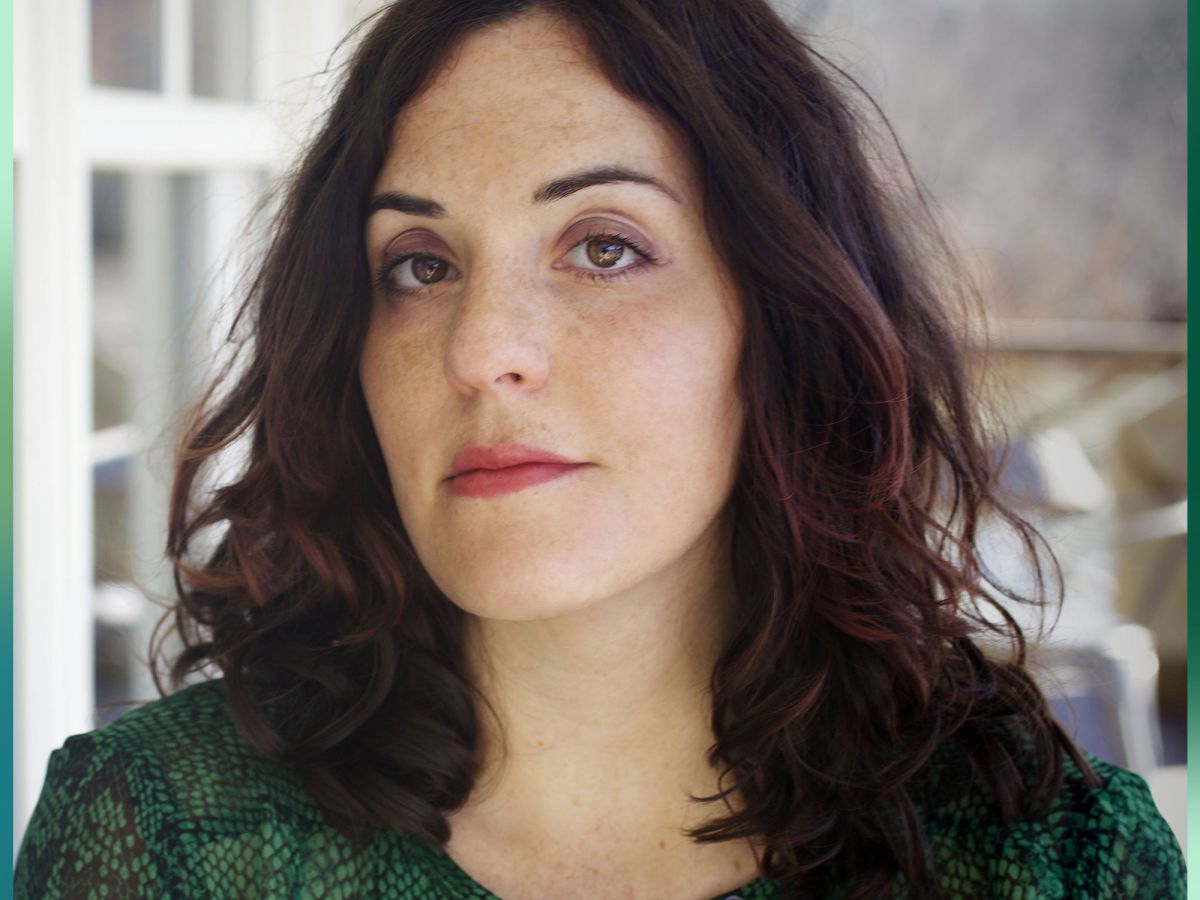
Marisa Scheinfeld
Scheinfeld is the author ofThe Borscht Belt . She grew up in the Catskills in the ‘80s, a time when many of the biggest Borscht Belt hotels still operated, but with less traffic than they once had. After watching the last hotels shutter, Scheinfeld spent five years photographing their abandoned remains.
“I was raised in the Borscht Belt, went to high school there, and had one of my first jobs at The Concord. My grandparents owned a condo at Kutsher’s, so my earlier childhood was a lot of hanging out with my grandparents and doing the quintessential Borsht Belt activities like shuffleboard, going in the pool, having a schvitz [a steam or sauna].
“In grad school, I felt kind of stuck, so my mentor told me to shoot what I know, which then began my Borscht Belt project. I went on a five-year quest to document any remains of the Borscht Belt that I could, whether it was a singular structure, a pool, a tennis court, a bungalow, the old lobbies, kitchens, showrooms, and shuffleboard courts. I found maybe about 50 different ruins.”
“I think the saddest for me to photograph was Kutsher’s, because I remember going there one day and photographing the same pool table where my Grandpa Jack taught me how to play. And it was like the earth shattered underneath me, because all of the sudden I was 10 again standing there as a 30-something-year-old woman.
“I don’t look at the places as empty — I look at them as full of stories and memory and personal experience. And of course there’s a lot of shit in the photographs, bird carcasses and garbage and decay and insulation plunging from ceilings. But I also see this peculiar beauty where you have these ferns growing out of a dead pool, and there are these ideas of cycles of life, which is very important in Judaism, and these beautiful flowers kind of growing up from a pillar that has been there for 50 years that was the only thing that didn’t get knocked down somehow.”
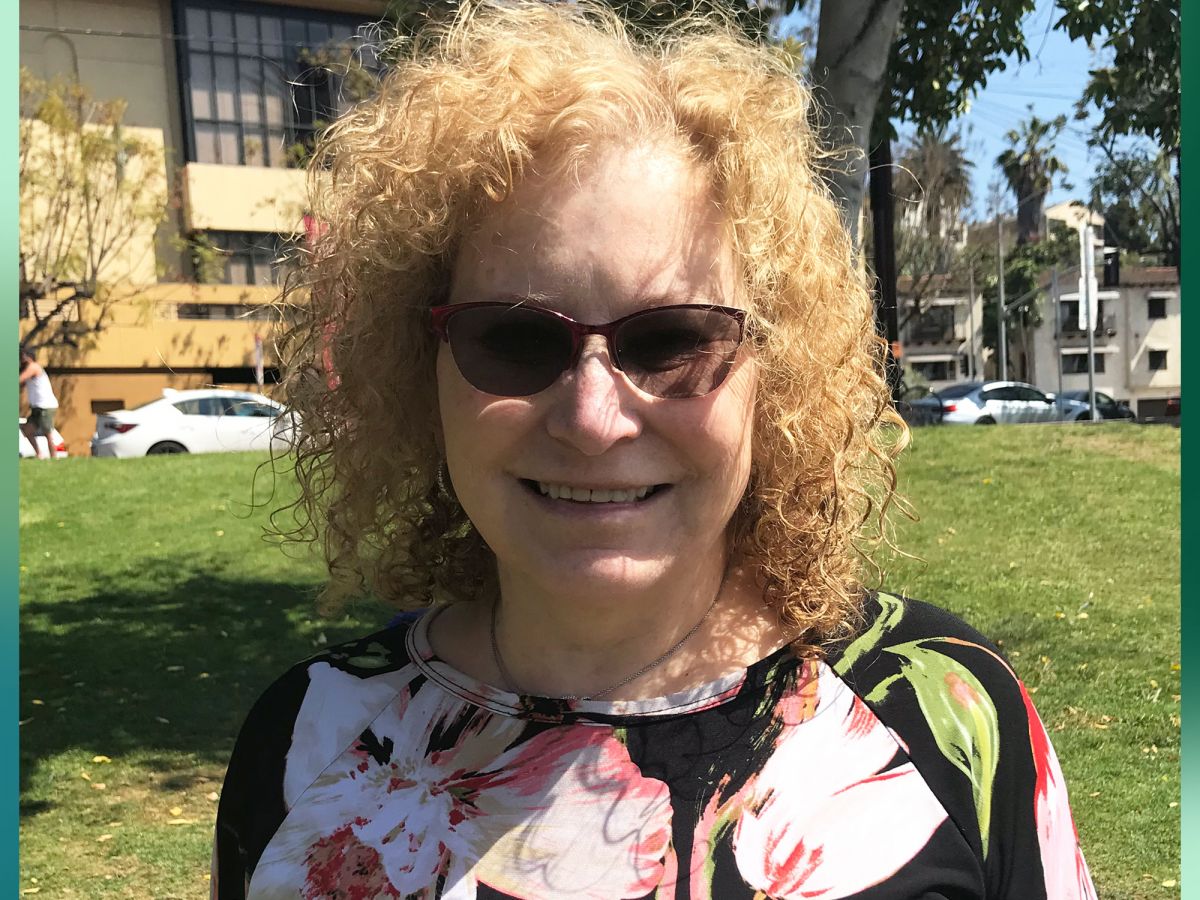
Gloria Fontak
Fontak first went to Swan Lake in Sullivan County as a child in the ‘60s before her family started going to the bungalow colonies, and then went to Grossinger’s in Liberty, NY, as an adult in the '80s.
“My family lived in Forest Hills, Queens — the four of us in a two-bedroom, one-bathroom apartment. My parents didn't make a lot of money. It was a big deal for them to go up to the Catskills. My parents were even at Swan Lake when Woodstock happened. My mother said they were going out and giving people on the road extra food from the dining room.
“My parents are Holocaust survivors. I didn't know they had an accent until I was 19. You'd go to the mountains and all these other Holocaust survivors were there as well, so that was a big deal. They'd go to the shows and play cards; they'd go to the pool. That was the experience, and they would send us kids to federation camp most of the time.
“But you know what I remember about those hotels the most? It was like being on a cruise ship at meals. There were those old Jewish waiters who always had jokes. You'd come in and they'd put down 25 appetizers on the table, and then you'd order four more things and just eat like crazy. There'd be shows at night. I was in a talent show once — I sang ‘Row Row Row Your Boat’ in ‘65, ‘66, or somewhere around there.
“And then when [my husband and I] were first going out in the ‘80s, we went to Grossinger’s and Freddie Roman would be there — all the old time comedians. They had a risqué midnight show.”

Talya Bendel
Bendel is a modern-orthodox Jewish woman who lives in Brooklyn and goes to the bungalow colonies in the Catskills every summer with her family, where there remains a huge Jewish community.
“It’s like a sleepaway camp ground. Kind of like Dirty Dancing, sitting together in this wooden cabin in front of this guy on stage entertaining you — it’s very much 1950s. Each bungalow colony sort of caters to a specific sect, although people mix and match, and you can have many different types in one. You have your more religious bungalow colonies and your less religious bungalow colonies, your Hasidic bungalow colonies and your Sephardic ones. At this point there’s probably hundreds of them — there’s so many I can’t even count.
"In the one that my husband grew up in, they have what they call the casino, where they have a show every Saturday night. Many colonies have a calendar made up in the beginning of the summer with lots of entertainment — they bring over comedians, musicians, mentalists, ventriloquists. And most bungalow colonies have a camp for the kids, a communal rec center, a place where people go to pray on the Sabbath. And a lot of bungalow colonies participate in a baseball league, so every summer there's a tournament.
“My first job was as a mother’s helper in my early teens at a bungalow colony. For some people, it’s like a rite of passage for teenagers and young people to spend the summer upstate. Being a teenager and working upstate is like learning your independence for the first time. It’s a great opportunity for kids and teens to have responsibility and independence and learn how to keep track of the food in your fridge and keep a bungalow. There's family life, but then there’s being a teenager in a foreign colony, where you don’t know anybody except the person who hired you and the three friends you went with — and then you’d just go have amazing adventures. That was my experience.”
Click HERE to read more.
You can publish this article on your website as long as you provide a link back to this page.

Be the first to comment